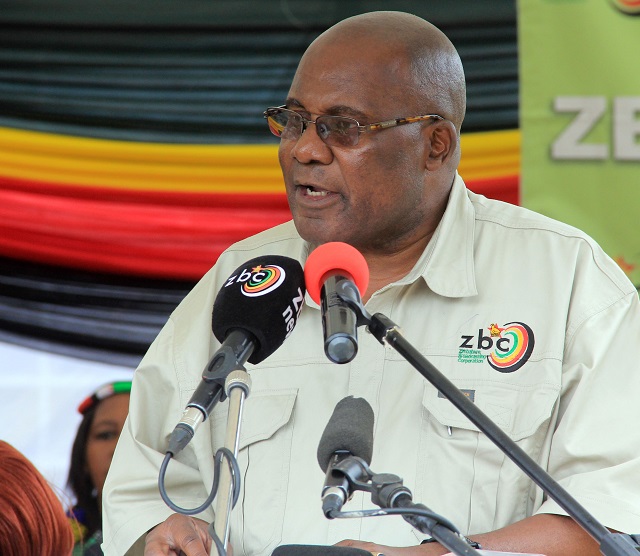Local language news helps build nation

Saul Gwakuba Ndlovu
The Government’s recent launch of the country’s television news programme broadcasting in nine formerly so-called minority languages was a very big nation-consolidation step.
It was not surprising at all that the Minister of Information, Media and Broadcasting Services, Dr Christopher Mushohwe, repeatedly said it was a historic and very exciting occasion.
Zimbabwe has 16 languages of which only three had been publicly featuring in the country’s national activities that is to say in its politico-legal, its culture-educational and social activities until recently when the new constitution recognised the existence of other languages.
Before that constitution was crafted and adopted nationally, there had been a couple of pressure groups that were demanding the official recognition and usage of these languages especially in the areas where they are spoken.
Among the original and most persistent of those pressure groups was the pre-independence Kalanga Literature Society (Kaliso) whose activities, unfortunately, began and ended with discussions.
Kaliso faded with the passage of time, but its great aims and objectives lived on in the minds of some TjiKalanga speakers such as the late Milton Nsala Malaba, Dr Butsilo Dabudabu, the indefatigable Jonathan Butshe Moyo, the self-made Dr Henderson Mpakati Tapela Nleya, and this article’s author.
Hurdles to be surmounted included apathy by communities that speak the disadvantaged languages and some national authorities’ downright hostile opposition.
Feeling that there is always strength in unity, the Tonga people proposed that they and the BaKalanga, BaVenda and the BaSotho should come together under an umbrella organisation to promote those languages, and as a result the Zimbabwe Indigenous Languages Promotion Association (Zilpa) was formed with the founder chairman being the author of this article. The Tonga people were headed by a Mupande, a highly motivated, hardworking man with a realistic vision for the Tonga language. He was working closely with the Roman Catholic Church in Harare and Binga. Tonga has advanced a great deal in all Tonga speaking areas, especially in the schools.
Seminars and conferences were held under the church’s auspices. Zilpa brought the Shangaan community aboard, making six the number of languages being promoted by Zilpa.
Today, we are talking about eight, the additional two being Chewa and Ndau. If we were to add the total population now benefiting from that campaign, we are looking at about four million people, give or take half a million.
Prior to the constitutional recognition of those languages, they were derisively referred to as “minority languages”, a reference to the number of people who speak them.
It is certainly unlikely that they were not being recognised because of their numerical paucity, a very, very undemocratic practice by any consideration. It was rather because of subtle political manoeuvres involving the settler government, some Christian denominations and some old fashioned traditional leaders.
An individual is as entitled to enjoy his or her full constitutional rights as a family, a family as a community, and a community as a nation.
It is absurd to say because a group of people are a minority in a community, they must worship the god of the majority and abandon their own, or that they must learn and speak the language of the majority at the expense of theirs.
A language is a person’s psychological anchor without which the individual is not complete. In music, a song in one’s language is more appreciable to the speakers of the language than one in a foreign tongue unless one is a culturally transformed animal.
The launch is a reflection of a progressively democratic policy in that the owners of the means of broadcasting, that is to say the airwaves, the equipment, plus, of course, the technicians are now going to share the services of those three components with the language communities involved.
The quality of the programme content will depend on the quality of the professional and technical personnel that design and produce them, and the quality of the personnel will, in turn, depend on the management that recruits them, a duty that must be carried out to the satisfaction of the proprietors of the broadcasting station because management is in a stewardship relationship with the ownership of the enterprise.
Recruitment must satisfy ZBCtv customers or clients by the production and presentation of news of interest and value to them. News of interest means happenings that excite listeners or viewers because it is relevant to or is about their localities, families, neighbours or acquaintances.
News of value comprises occurrences that educate or enlighten those who hear them, making them socially and culturally better, politically and economically wiser than before.
To achieve all this, communities of the languages concerned should keep in close contact with their local ZBCtv representatives and inform them about local occasions such as sports events and social occasions, particularly weddings and burials, the latter being those of important local personalities.
Political meetings are also of interest to a large number of Zimbabweans because of the country’s armed revolution background that involved virtually every adult black person in one way or another.
People who should keep in close contact with media establishments include traditional leaders, MPs, councillors, heads of school development organisations and those interested in the development of local tourism.
A locality’s successes, aspirations, failures, economic, social, political and cultural problems and programmes can be known, achieved and resolved only if the local people affected publicise them, that is, only if they tell the media, such as ZBCtv.
Saul Gwakuba Ndlovu is a retired, Bulawayo – based journalist. He can be contacted on cell 0734 328 136 or through email. [email protected]







Comments